
Ramadan 101 – for those who want to learn about Islam

Ramadan is the 9th month in the Hijri calendar which is the Lunar calendar that Muslims follow. This year Ramadan is likely to begin from April 2, 2022 but may vary by a day depending on the sighting of the new moon.
Fasting is one of the 5 – Pillars of Islam and a fundamental principle of our Creed. The 5 – Pillars are: Shahada (bearing witness to the Oneness of Allahﷻ and the Messengership of our prophet Muhammadﷺ), Salah (5 daily prayers), Zakat (compulsory charity = to 2.5% of savings), Sawm (fasting in Ramadan), and Hajj (pilgrimage to the Ka’aba in Makkah).
All adult Muslim men and women fast from dawn to dusk, abstaining from all food, drink, and sexual relations with their spouses in obedience to the command of Allahﷻ who said:
Qur’an 2: 183 O you who believe! Fasting is prescribed for you as it was prescribed for those before you (Jews & Christians) so that you may become Al-Muttaqun [pious, seeking the pleasure of Allahﷻ ]
People who are sick, menstruating, lactating, or traveling are excused from fasting and must make up the missed fasts during the rest of the year before next Ramadan.
People who have incurable or chronic ailments that prevent them from fasting and for whom fasting may be dangerous to life are permitted to pay for the food of a fasting person, which will compensate them for the fact that they can’t themselves fast. This leave is meant only for someone with such ailments.
The fast starts with a meal called Suhoor (or Sehri) before the dawn prayer, called Fajr. It is recommended that we keep this meal light, but there is no prescribed food to eat. Dates are an excellent source of sugar, fiber and carbs and are eaten at Suhoor and Iftaar. Dieticians recommend that you eat some protein as it helps in combating hunger. So, to eat an egg or two at Suhoor is a good idea. We stop eating a few minutes before the time for Fajr prayer begins.
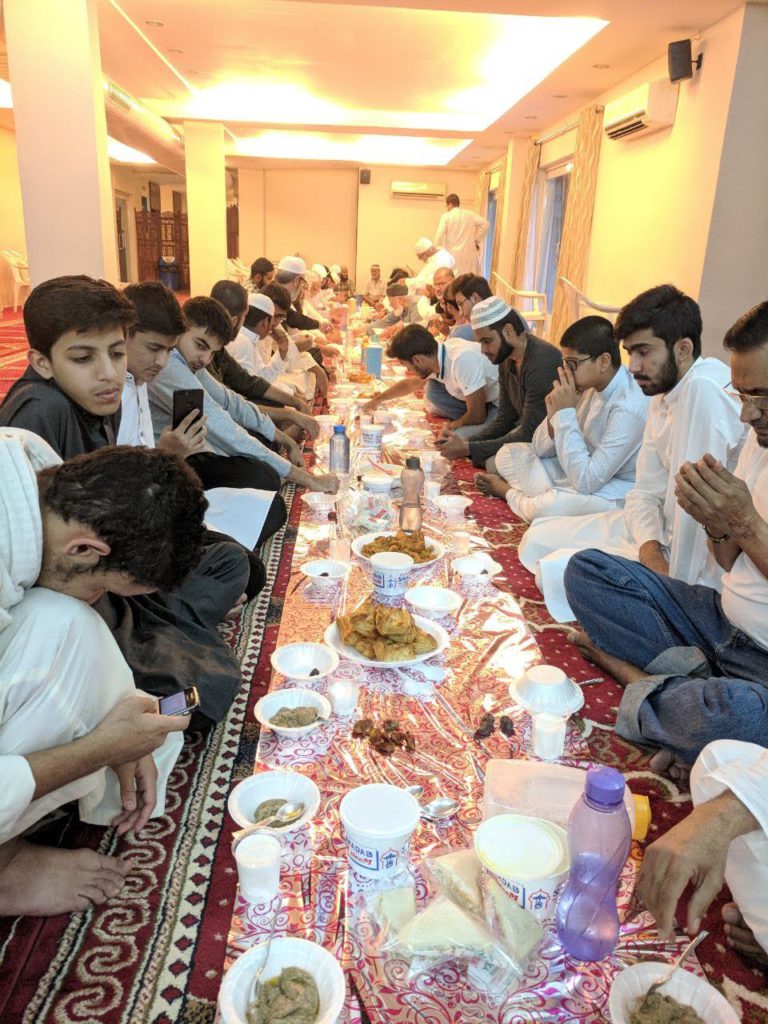
The daily breaking of the fast is called Iftaar. This is done at sunset. It is customary to break the fast by eating dates, but the fast can be broken with a sip of water or by eating anything other than dates. This is followed by the sunset prayer, Maghrib and then they eat their main meal for the day, followed by the night prayer, Isha. The times of Suhoor (morning meal) and Iftaar (breaking the fast) vary with sunrise and sunset times throughout the month.
There are special night prayers in Ramadan called Taraweeh, which is prayed after the night prayer called Isha. This takes about an hour and in the course of the whole month, the entire Qur’an is recited in Taraweeh. In the last ten nights of Ramadan there is an extra prayer called Qiyam starting at about 2.00 AM for another hour or so.
The person leading the Taraweeh and Qiyam prayers is a Hafiz (one who has memorized the entire Qur’an – 600 pages). However, if no Hafiz is available, it is permitted for the Imam (prayer leader) to read from the Qur’an, either held in his hands or placed on a stand or table before him.
Fasting drives home the very essence of Islam i.e., submission to Allahﷻ. We fast because Allahﷻ ordered us to do so. Not because it is good for health or to lose weight or to know how poor people in India feel or any of the many romantic notions that some people have. We fast because Allahﷻ said so and we submit, lovingly and willingly to His Will.
Fasting is not only about not eating and drinking and sex. It is about bringing about a total change in lifestyle and habits to make them more pure, pious, and positive. During Ramadan, Muslims try their best not to waste time, stop backbiting, slander, profanity, watching, listening to, or indulging in any activity that is prohibited. Ramadan is used for goal setting for the year ahead until next Ramadan.
That is not because these things are prohibited only in Ramadan, but we use Ramadan to give ourselves a boost into a new, healthier, happier way of life. Ramadan is a habit change boot camp.
That is why Allahﷻ said, “The fast is for Me, and I will reward it.”
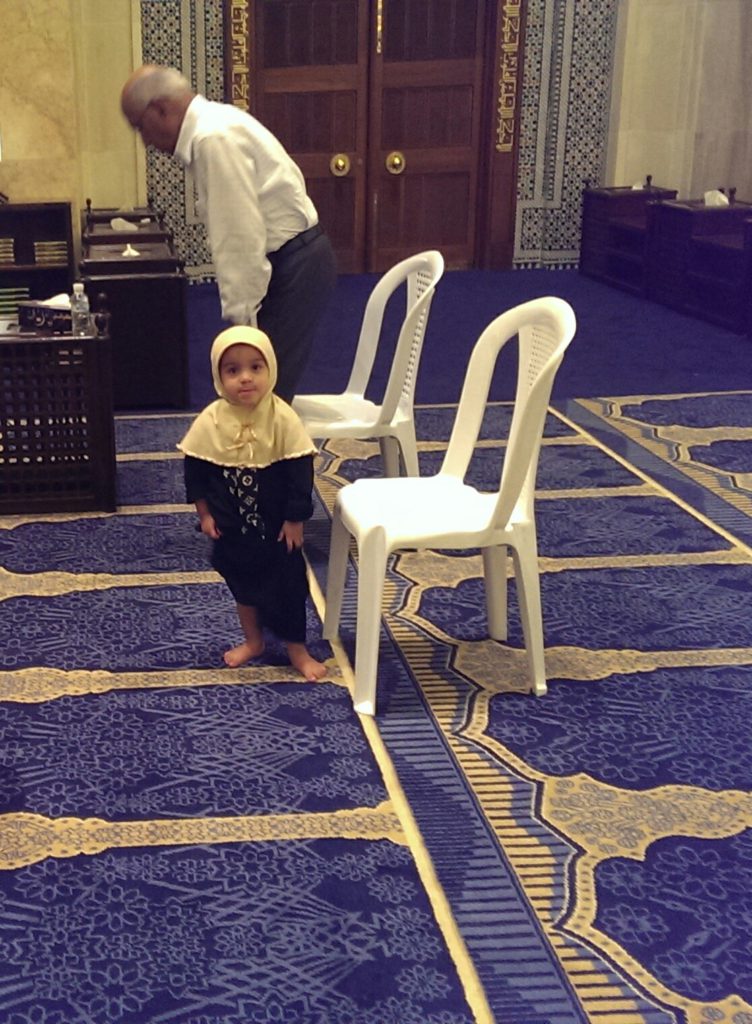
Children in Muslim families are very eager to start fasting, so it is normal to see young children on whom fasting is not compulsory, doing so for fun. In many homes young children are indulged to start their fast with their elders before dawn – there’s something so exciting about the equivalent of a midnight feast – but at lunch time, their mothers will usually give them lunch and praise them for having fasted. So, don’t be surprised if you see young pre-puberty children also fasting.
Ramadan ends with the sighting of the new moon for Shawwal which is the month after Ramadan. This may happen on the night of 29th or 30th Ramadan.
While people try to look for the crescent at the beginning and end of Ramadan, to start and end the month, the sighting of the crescent by any responsible person is accepted, and the beginning and end of the month is declared by the Moon Sighting Committee. There is one in most states.
Ramadan is specially blessed because it comes with special rewards. The reward of every good deed is multiplied from 70-700 times. The doors of forgiveness and mercy of Allahﷻ are opened. Muslims therefore try to maximize their time in worship. For this reason, you may find that they are not as responsive as usual to messages, emails and so on. So, please understand why and support them.
While prayer is enjoined on us, five times every day, you will find that Muslims are more particular about that during Ramadan. This is something to be encouraged. Remind them that they should do this throughout the year, not only in Ramadan.
Most Muslims also pay Zakat (compulsory charity) during Ramadan thanks to the enhanced rewards. Zakat can however be paid at any time of the year.
Many Muslims will also do other works of charity like feeding people, visiting the sick, donating money for projects for social welfare, education, health and so on. Over one trillion US dollars is given in charity annually by Muslims, globally. This makes Muslims, perhaps the most generous people on earth.
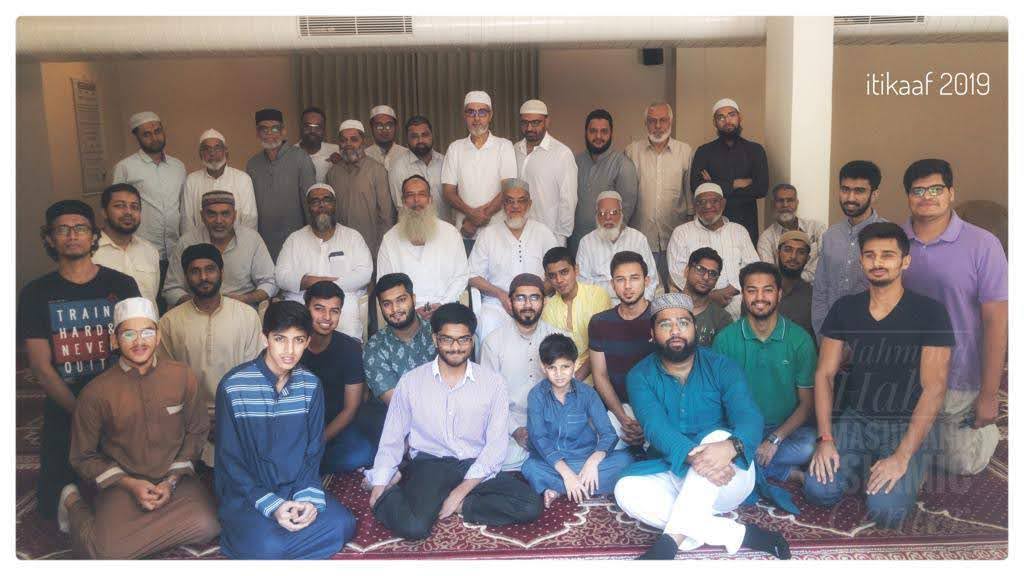
During the last 10 nights of Ramadan is Laylatul Qadr – the Night of Power. This is a very special night and Muslims say special prayers in it. Many men and women also do Itikaaf (Retreat in the masjid for solitary worship) for the last 10 days of Ramadan. There is huge virtue and value in doing this, the chief of them being that you are sure to get Laylatul Qadr. Itikaaf is a time for silent worship, reflection, introspection, making the intention to inculcate positive habits, and above all to repent to Allahﷻ and seek His forgiveness. Studies have shown that people have deep spiritual experiences during Itikaaf and that for many of them, it is a life changing experience.
Ramadan ends on the 1st of Shawwal and that festival is called Eid ul Fitr.
Muslims celebrate by giving special charity called Zakat ul Fitr and then going to a congregational prayer which is prayed after the dawn prayer, when the sun has fully risen.
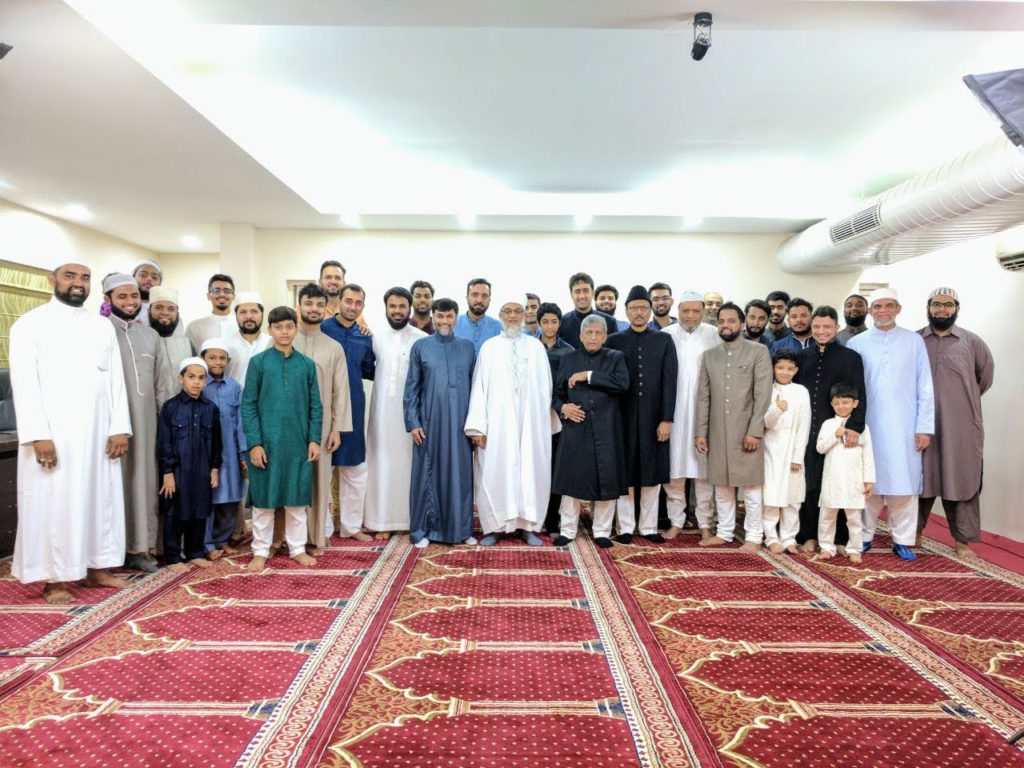
Muslims usually wear new clothes for the prayer after which they distribute sweets, call on their relatives and friends and exchange gifts.
What must I, as a non-Muslim friend, employer, leader, helper of Muslims do?
Give them time off to pray as well as a place to do so if there is no masjid nearby. Each prayer time should not take longer than 30 minutes. Let them make up the time at the end of the shift or by working on a weekend.
Depending on the work shift times, they may need time to eat to start their fast with Suhoor and to break it with Iftaar and dinner after Maghrib prayer.
Ask your Muslim friends to tell you about Ramadan and Islam. Remember to ask respectfully and listen non-judgmentally. That is the key to all cross-cultural communication.
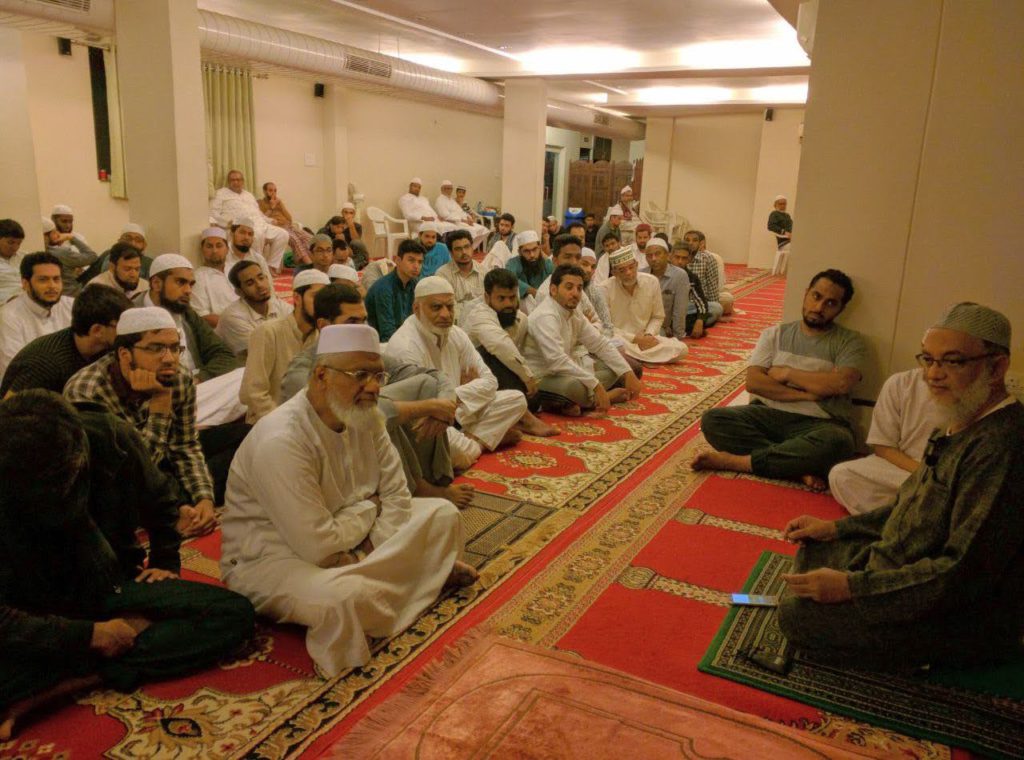
Request your Muslim friends to take you to a masjid and see the prayer happening. Go to an evening prayer where the recitation is aloud, so that you can listen to the sound of the Qur’an being recited. Sit at the back so that you can leave at your convenience. It is not permissible to cross in front of people while the prayer is going on, so please wait for the prayer to finish and then you can leave.
Muslims pray 5 – times daily. The prayer times will differ based on sunrise and sunset times. But roughly Fajr (dawn prayer) is at dawn, usually around 5 AM. Dhuhr, also pronounced as Zuhar (midday prayer) is around 1 PM. Asr, also pronounced as Asar (afternoon prayer) is around 4 PM. Maghrib (sunset prayer) is at sunset, Isha (night prayer) is around 8 PM. As I mentioned, in Ramadan there is Taraweeh follows Isha. The weekly congregational prayer is on Friday (Juma or Jumu’a prayer) which has a sermon with it. This is at the time of the Dhuhr (midday prayer) in the local masjid. This is the equivalent of Sunday Mass and Saturday Shabbat in the Christian and Jewish traditions.
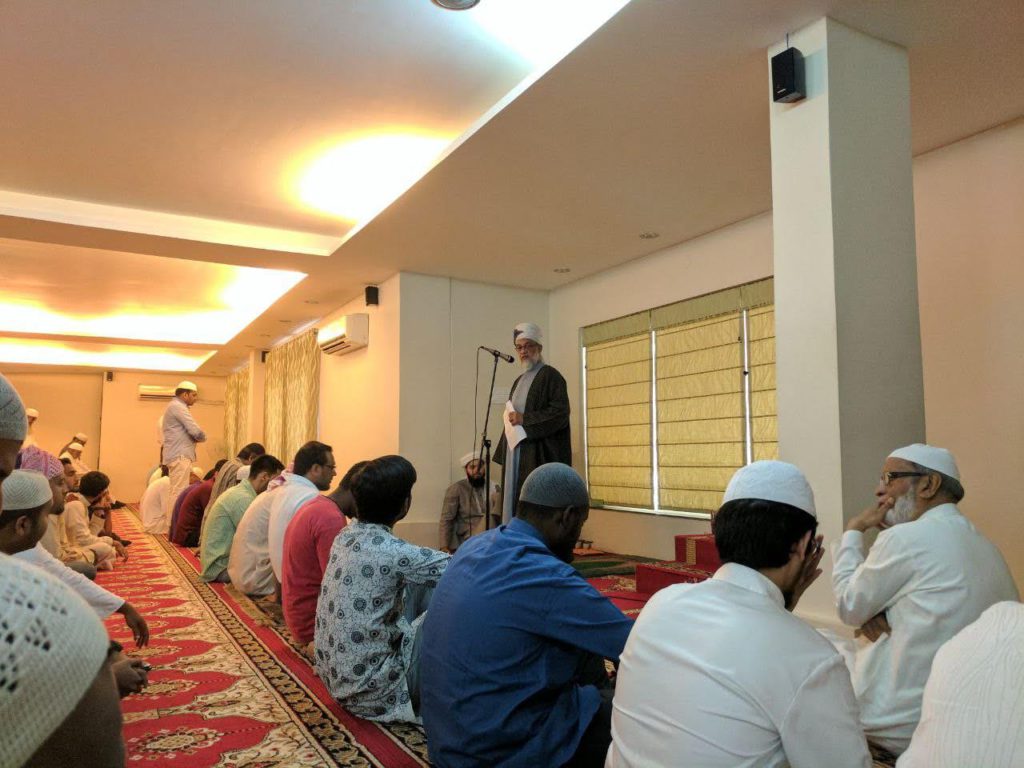
While the daily prayers can be done at home or at work, the Juma (Friday prayer) can only be done in congregation at the mosque. So, if your employees ask for time off for this, do oblige and ask them to pray for you. We can all do with some prayers. All prayers are open to everyone, men, and women. Women pray in their own private section in the masjid.
Here are some quick points of etiquette in the masjid:
All of us, men, and women, wear loose clothing that covers the whole body, and we cover our heads (and hair), women with a scarf and men with a cap.
We take our shoes off in the lobby of the masjid and walk on the carpets in our socks or in indoor shoes/booties.
Hygiene is of primary importance and so if you smoke, do wash your mouth before you go to the masjid. Muslims are not permitted to smoke since Islam prohibits all addictions and all destructive actions and habits.
The masjid is a sacred space meant for worship, so please remain, and keep your phone silent. If you need to speak on the phone, please step outside the masjid. If you need to speak to someone to ask for directions, please speak very softly.
There are no reserved spaces in the masjid, and you can sit wherever you find a vacant spot. If you are not Muslim, it is best to sit on a chair at the back so that you are not in the way of anyone who is worshiping but can still observe the prayer. Please do tell someone that you are not Muslim and have come to visit the masjid and observe the prayer, so that they can explain to anyone who wants to know who this person is, who is not praying.
Greet people verbally by saying As-salaamu-alai-kum. If they put out their hand to shake yours, please do so. If not, just the verbal greeting is fine. Muslims, like Orthodox Jews, don’t shake hands with the opposite gender and so I want to save you from the embarrassment of finding your hand in space with no takers.
If you want to take photos or videos, please seek permission. All are courtesies we would observe in any prayer space, but reminders are good for us.
Experiment with fasting for one day with your Muslim friends. You can of course break your fast at any time during the day. We know you are not as tough as we are, but… 😉
If you are invited to an Iftaar, please do accept. If you invite others to an Iftaar, do understand that some people (I am one of them) who don’t go to any Iftaars because rich food interferes with the night prayers. So, no offense meant. Happy to accept any invitation outside Ramadan. But that shouldn’t stop you from inviting those who will be happy to come.
At the beginning of Ramadan, you can greet your Muslim friends by saying, “Ramadan Kareem or Ramadan Mubarak”.
The greeting for Eid ul Fitr is “Eid Mubarak”.
Comments (0)
Comments for this post are currently disabled.
Loading comments...